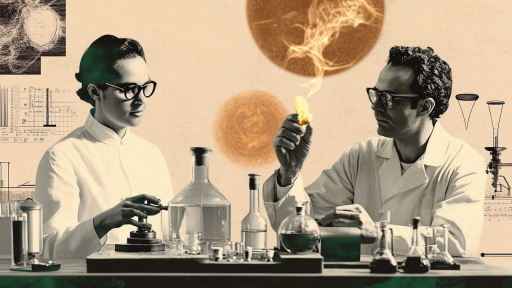
Medications are designed to heal, relieve, and improve our health—but sometimes, they come with effects no one expects. From uncontrollable urges to changes in perception, some side effects seem more like something out of science fiction than medicine. While many are rare, they can leave patients wondering if the cure is stranger than the condition. These bizarre reactions prove that when it comes to the human body, science still has its mysteries.
A Medication That Makes You Gamble

Some drugs used to treat Parkinson’s disease and restless leg syndrome have an unexpected side effect: compulsive gambling. These medications affect dopamine levels in the brain, which can lead to risky behavior and addiction. Patients who have never placed a bet in their lives have found themselves drawn to casinos, online betting, and other high-stakes decisions. Once the medication is stopped, the gambling urges usually disappear.
Vivid, Uncontrollable Nightmares

Certain medications, including some antidepressants and blood pressure drugs, can cause intensely vivid dreams—often terrifying ones. People report reliving past traumas, dreaming in extreme detail, or even feeling physical sensations in their sleep. These nightmares can be so realistic that they blur the line between dream and reality. For some, it’s like stepping into a horror movie every night, whether they want to or not.
Tasting Metal That Isn’t There

Some antibiotics, chemotherapy drugs, and even over-the-counter pain relievers can leave patients with a strange, metallic taste in their mouths. This happens when the medication alters taste receptors or interacts with saliva. For some, even water can taste like pennies, and their favorite foods become unbearable. The sensation can last for weeks, making meals an unexpected challenge.
A Medication That Turns Urine Bright Blue

Certain medications, including some pain relievers and antibiotics, can cause urine to change color—sometimes to an unnatural bright blue or green. While harmless, it can be alarming for those who aren’t expecting it. This happens when the body processes certain dyes or chemical compounds in the medication. It’s a vivid reminder that what goes in must come out—sometimes in shocking ways.
Sleepwalking and Sleep Eating

Some prescription sleep aids can cause people to get up in the middle of the night and perform complex activities—without any memory of it the next day. People have been known to cook full meals, drive cars, or even shop online in their sleep. Some wake up to find their kitchen ransacked or unexpected purchases on their credit card. It’s one thing to sleepwalk, but it’s another to wake up with a half-eaten sandwich in bed.
Hallucinations That Feel Too Real

Certain medications, including those used to treat Parkinson’s and migraines, can trigger hallucinations—sometimes of shadowy figures, insects crawling on the skin, or voices whispering in the background. These side effects occur when the brain misinterprets sensory input, creating things that aren’t really there. For those who experience them, the hallucinations can feel terrifyingly real, even in broad daylight.
A Medication That Causes Sudden, Uncontrollable Laughter or Crying

Some neurological medications can trigger a condition called Pseudobulbar Affect, which causes people to laugh or cry uncontrollably—even when they don’t feel emotional. Someone might break into laughter at a funeral or start sobbing over a minor inconvenience. It’s not linked to their actual feelings, making social interactions awkward and unpredictable. When emotions go rogue, it can be as unsettling as it is confusing.
Strange, Hyper-Realistic Déjà Vu

Some epilepsy and anxiety medications can cause intense déjà vu, making people feel as if they are reliving the same moment over and over. In extreme cases, patients describe feeling “stuck in time” or unable to tell if a memory is real or imagined. Scientists believe these experiences occur when the brain misfires, triggering memory recall at the wrong time. For those affected, reality itself can start to feel like a glitch in the system.
A Drug That Changes Your Sense of Time

Certain medications used to treat anxiety and depression can alter a person’s perception of time, making minutes feel like hours or days pass in a blur. Patients report feeling like they’re living in slow motion or that the world is speeding past them. Scientists believe this happens due to changes in neurotransmitters that regulate attention and awareness. When time itself feels unstable, it can be one of the strangest side effects of all.
When the Cure Feels Like Science Fiction

Medications can heal and save lives, but they can also reveal the strange ways our bodies and minds react to chemicals. Some of these effects are temporary, while others reshape perception in ways no one expects. They remind us that even with all our medical knowledge, the human brain and body still hold countless surprises. The question remains—how many more bizarre side effects are still waiting to be discovered?





